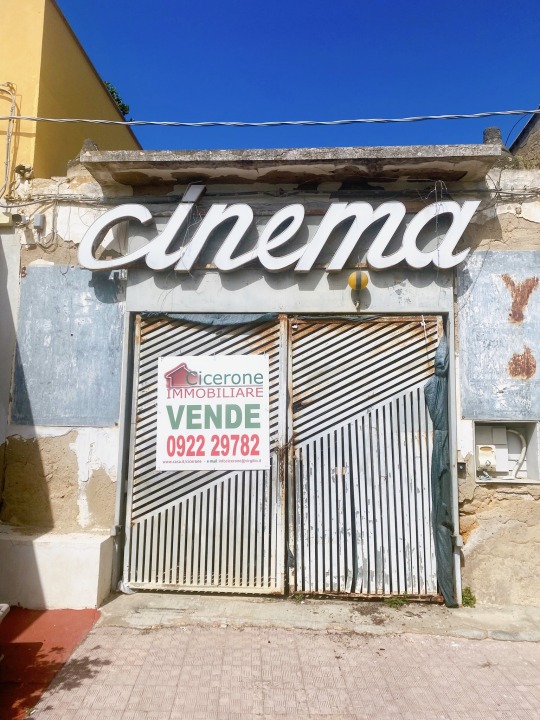#cinema Sicilia
Text
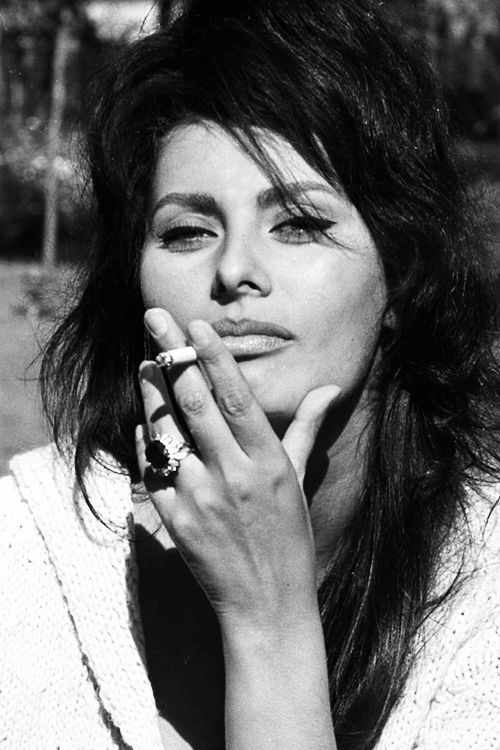
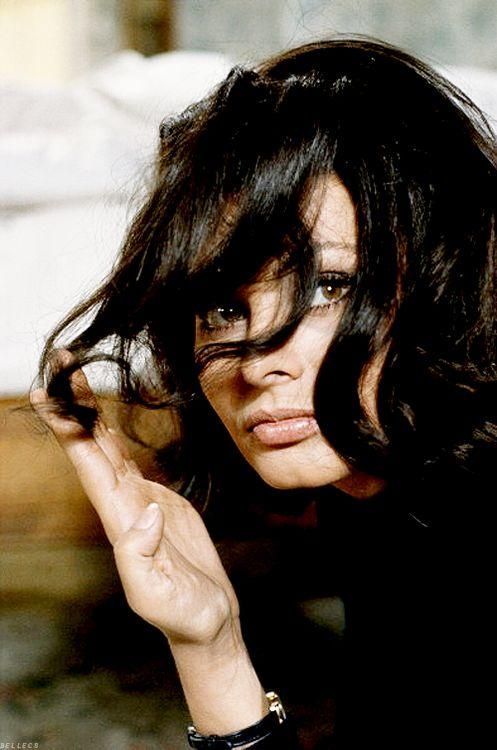

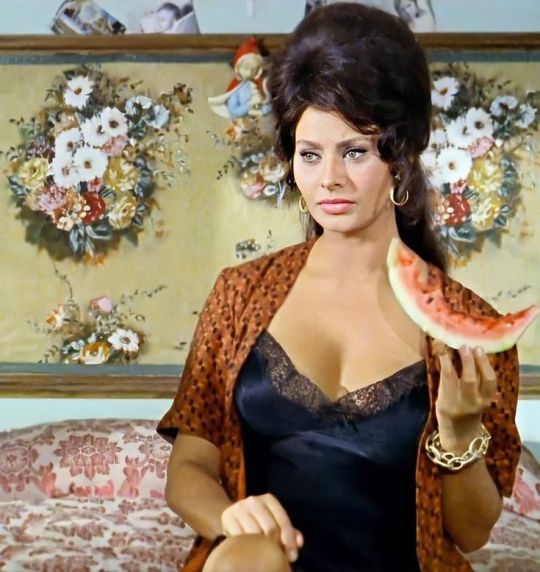

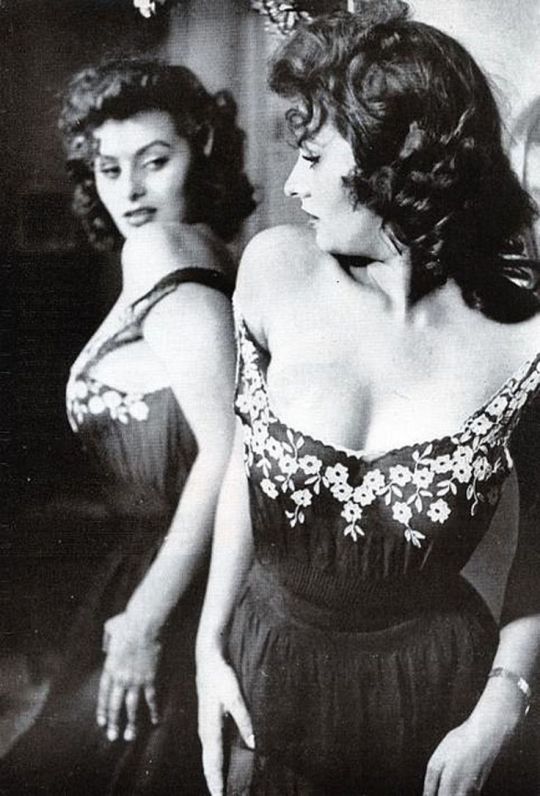
#beauty#art#love#self love#cinematography#movie#cinema#film#cinephile#sopialoren#italia#sicilia#napoli#napoleon#naples
10 notes
·
View notes
Text
«Pensavo... è che ho sempre avuto paura di tornare. Ora che sono passati tanti anni, pensavo di essere più forte, di aver dimenticato molte cose. E invece... mi trovo tutto davanti... come se fossi rimasto sempre qui. Eppure mi guardo intorno e non conosco nessuno. E tu, mamma... ti ho abbandonata [...]»
«[...] Hai fatto bene ad andartene... Sei riuscito a fare quello che volevi. [...] Ma la tua vita è lì... qui ci sono solo fantasmi... Lascia stare, Totò.»
Nuovo Cinema Paradiso, Regia di Giuseppe Tornatore (1988)
21 notes
·
View notes
Text
Emotivamente instabile dopo rewatch di tutti i film de Il padrino. E come se non bastasse decido di farmi del male facendo rewatching con C'era una volta in america edizione integrale (mancano 50 minuti che continuerò domani).
Questa estate doveva essere all'insegna di film con ambientazione estiva e invece a parte Corleone assolata e vari luoghi della Sicilia, i film di base sono tutti su morti ammazzati.
Eppure, è indescrivibile trovare sfaccettature diverse negli sguardi di Al Pacino e Robert De Niro. É emozionante sentire Ennio Morricone con le sue colonne sonore torcibudella. La scena finale de Il padrino parte terza mi ha distrutta: perfetto accostamento tra Cavalleria Rusticana e omicidio di Maria, colonna sonora da La cavalleria rusticana da pelle d'oca, scena disperata di Michael Corleone assolutamente struggente.
Mamma mia, questo sì che è cinema.
#il padrino#c'era una volta in america#al pacino#robert de niro#ennio morricone#sicilia#new york#francis ford coppola#sergio leone#cinema
3 notes
·
View notes
Photo
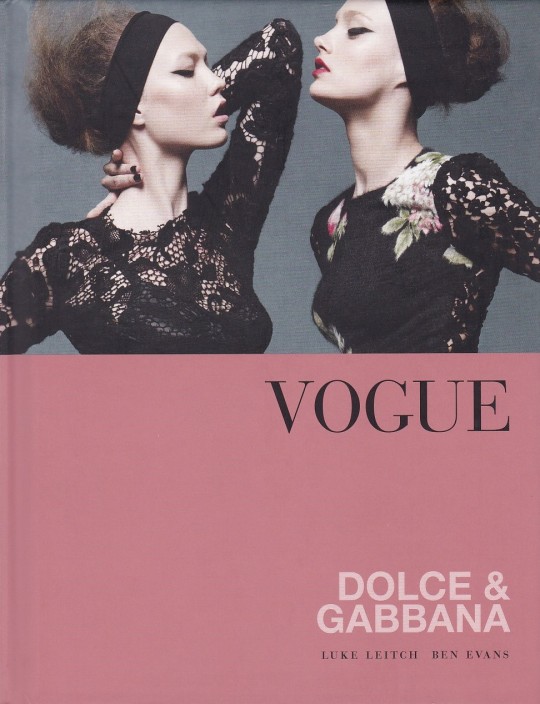



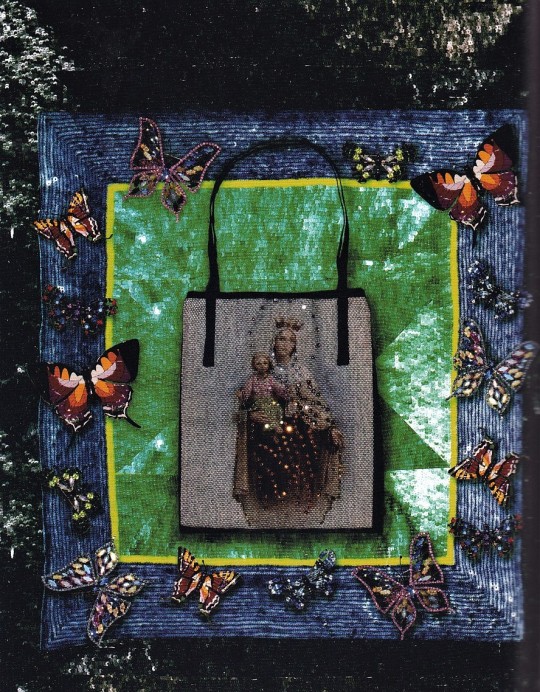
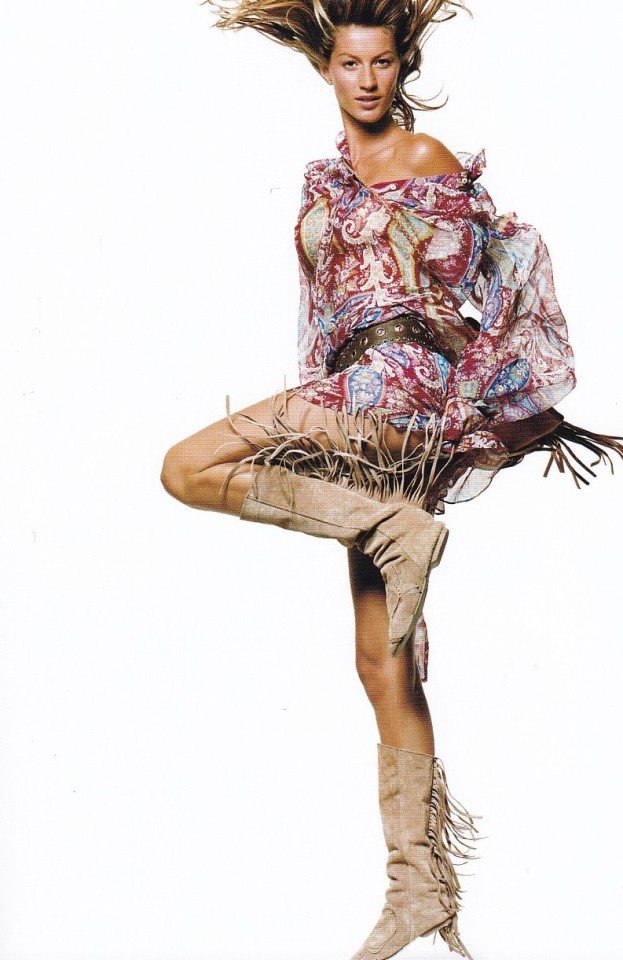


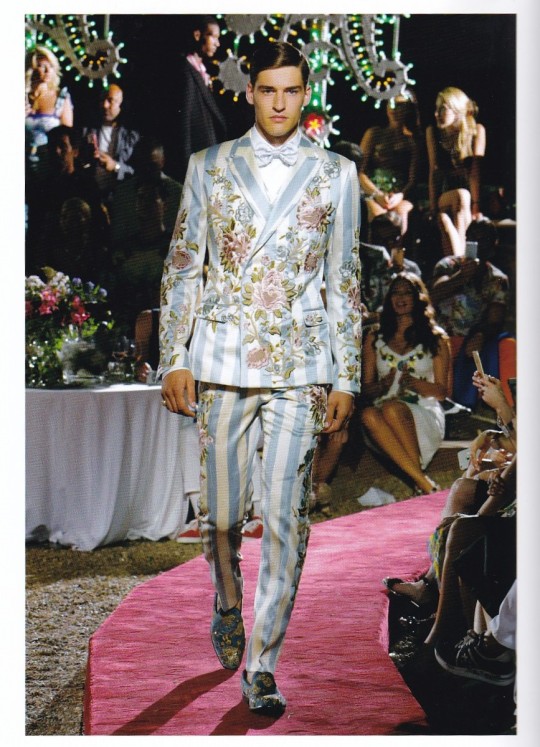

Vogue Dolce & Gabbana
Luke Leitch, Ben Evans
Atlante, Valsamoggia (BO) 2022, 158 pagine, rilegato, 8.50 x 6.50 cm., ISBN 9788874551873
euro 19,50
email if you want to buy :[email protected]
Domenico Dolce e Stefano Gabbana sono la coppia di maggior successo nella storia della moda. Il loro stile, teatrale e focoso, è ispirato dalla passione per la Sicilia, dall'immaginario religioso e dalle dive del cinema come Sophia Loren e Monica Bellucci, testimoniai delle loro creazioni: abiti attillati. giacche colorate. corsetti ricamati con cristalli Swarovski, opulenti abiti da sera di tulle dipinto a mano. broccati barocchi e stampe leopardate.
Luke Leitch è Style Editor di 1843, magazine del settimanale The Economist. Ben Evans insegna alla Central Saint Martin di Londra ed è Art Coordinator per Vogue
“Spero che la fene ricordi Dolce & Gabbana per la sensualità, la mediterraneità, l’onestà nei confronti della vita” Domenico Dolce
15/09/22
orders to: [email protected]
ordini a: [email protected]
twitter: @fashionbooksmi
instagram: fashionbooksmilano, designbooksmilano tumblr: fashionbooksmilano, designbooksmilano
#Dolce & Gabbana#Vogue#Sicilia#immaginario religioso#dive cinema#broccati barocchi#stampe leopardate#fashion books#fashionbooksmilano
8 notes
·
View notes
Text
youtube
L'autore del film trova idee e improvvisazioni in tante scatole che ha tenuto nascoste per molto tempo. Attraverso i personaggi di questa storia vuole liberarli. Decide di utilizzare la metafora del trasloco e alcune tematiche ataviche come traccia di un'indagine divisa tra domande e risposte che ci condurrà al racconto in cui si perde il confine tra realtà, finzione e maestria
The author of the film finds ideas and improvisations in many boxes that he has kept hidden for a long time. Through the characters of this story he wants to free them. He decides to use the metaphor of the move and some atavistic themes as a trace of an investigation divided between questions and answers that will lead us to the story in which the boundary between reality, fiction and mastery is lost
#salvatoregrecodj#passion#film#sicilia#teatro#cinema#parloconlamusica#youtube#anima#catania#biography#Biografilm#Youtube
0 notes
Text
Buondì, Diligente Lettore.
Diamo il benvenuto all'autunno.
Che sia la stagione attesa o che non risponda alle aspettative per il caldo che c'è qui da noi (trasmetto dal Sud Sicilia, per chi non l'avesse ancora inteso), chi è libero può "festeggiare", cogliere l'occasione di convivialità ed essere dei nostri all'incontro con il regista Zavvo NICOLOSI e assistere alla proiezione del film LA PRIMAVERA DELLA MIA VITA.
Diligente Lettore, vai al post: commenta e condividi.
Grazie!!_!!
https://www.instagram.com/reel/CxiNIaxIWFP/
Segui le indicazioni del post...
#film#cinema#cineforum#cineclub#film italiani#colapesce#dimartino#Grotte#Agrigento#Sicilia#CIATU E CIURI#art#trek#LaDiligenzaDelSapere
0 notes
Text

"Tell Me Who I Am" lands in Palermo (Italy)! Tonight at 9.30 pm, special screening at Cinematocasa, "where cinema has a different taste"! Next, I'll be connected via video call for a chat. Free admission subject to availability.
The film is produced and distributed by Nuove Officine Cinematografiche.
#cinematocasa#proiezione#screening#dimmichisono#tellmewhoiam#nuoveofficinecinematografiche#noc#lucacaserta#elisabertato#cinema#film#filmmaking#filmmaker#palermo#sicilia#sicily#italia#italy
0 notes
Text
[Atlante del cinema queer contemporaneo][Andrea Inzerillo]
Atlante del cinema queer contemporaneo di Andrea Inzerillo mappa il cinema queer europeo dal 2000 al 2020, proponendosi come un racconto originale e prezioso di un segmento importante della cinematografia del nuovo millennio
Interprete di pensieri e modalità esistenziali non omologate, il cinema queer contemporaneo riparte dal desiderio e rielabora le tematiche LGBTQI+ con modalità linguistiche e discorsive inedite, innovando estetiche e sensibilità e inaugurando una cornice all’interno della quale liberarsi delle etichette. In occasione dei dieci anni dalla nascita del Sicilia Queer filmfest, il volume curato da…
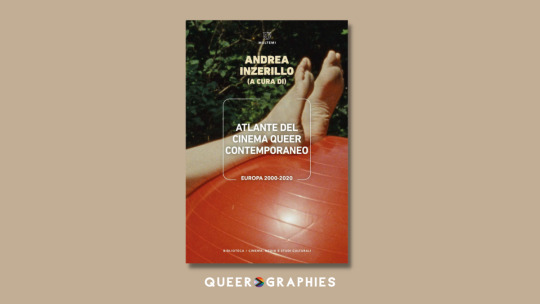
View On WordPress
#2023#Andrea Inzerillo#Atlante del cinema queer contemporaneo#cinema#Italia#LGBT#LGBTQ#Meltemi Editore#nonfiction#queer#Saggi#Saggistica#Sicilia Queer filmfest
0 notes
Photo

Posted @withrepost • @rassegnamusike ✨ Domenica scorsa Ottavia Piccolo e i Solisti dell'Orchestra Multietnica di Arezzo ci hanno fatto fare un viaggio nel tempo al @teatroballarinlendinara, portandoci nella Palermo del 1983 🙌 Ma al di là della storia della città, ci hanno raccontato quella di Elda Pucci, la prima donna a essere eletta Sindaca di Palermo. E lo hanno fatto in modo semplice ed emozionante 🥰 🤩 Grazie a tuttə, ancora una volta, per aver partecipato! Foto: Richard Giori #ottaviapiccolo #teatro #theatre #italy #art #spettacolo #arte #musica #performance #music #italia #instagood #picoftheday #photography #actor #theater #show #cinema #sicilia #photooftheday #sicily #festival #photo #cultura #travel #life #artist #cosanostraspiegataaibambini #officinedellacultura #orchestramultietnicadiarezzo (presso Teatro Ballarin Lendinara) https://www.instagram.com/p/ClGJw_VgcGV/?igshid=NGJjMDIxMWI=
#ottaviapiccolo#teatro#theatre#italy#art#spettacolo#arte#musica#performance#music#italia#instagood#picoftheday#photography#actor#theater#show#cinema#sicilia#photooftheday#sicily#festival#photo#cultura#travel#life#artist#cosanostraspiegataaibambini#officinedellacultura#orchestramultietnicadiarezzo
0 notes
Photo

Una amiga desde Sicilia me manda una foto del lugar donde se rodó Cinema Paradiso. Inevitable practicar con esos colores.... Acuarela y rotulador 28x31 #acuarela #sicilia #watercolor #watercolorimpressionism #artistsoninstagram #cinema #watercolorpainting #waterfordpaper #malofor https://www.instagram.com/p/Cj7jXFVMMmA/?igshid=NGJjMDIxMWI=
#acuarela#sicilia#watercolor#watercolorimpressionism#artistsoninstagram#cinema#watercolorpainting#waterfordpaper#malofor
0 notes
Text
Comparto los besos censurados de Cinema Paradiso.. la banda sonora es dulce y los ojos del pequeño Totó aun siguen brillando entre canas…. Me transporta, si cierro los ojos hasta puedo sentir el olor del marsala y las escobas… Sicilia.. los colores.. el amarillo de los limones…el azul intenso del mar… Espero que también la disfrutes como yo , esta pelicula me encanta…se nota eh? Buen finde jartitex, que beseis y seais besadxs este finde hasta aburriros. Jarti
18 notes
·
View notes
Note
Pensi che in Campania la vita sia migliore che in Sicilia? Se sì perché e se no perché?
Uau che bello, mi sento intervistata! Grazie per la domanda anon, mi fa piacere che mi si venga chiesto un mio parere (e pure all'improvviso!) mi dà modo di riflettere.
È una domanda bella tosta, eh. È doloroso per me parlare della Sicilia. Io mi sento offesa nel personale dai siciliani e dalla cultura che si vive in Sicilia. Se sei una persona che un minimo di vita interiore e di raziocinio la Sicilia è la morte pura. Se ci metti poi in mezzo un carattere introverso ed una famiglia che non tiene soldi, senti il tuo destino segnato per sempre. Ti senti morire dentro. Ma questo non so se sia quello che mi hai chiesto tu quindi cerco di non divagare.
Se per "vita" intendi dal punto di vista lavorativo qua in Campania sei sempre al sud: contratti minimi (nel mio contratto avevano segnato 14h settimanali quando io facevo 7h½ al giorno!), orari improbabili (al supermercato avevano iniziato a chiedermi di lavorare 11h al giorno e sole due domeniche libere al mese!). Lo stipendio più alto 800€ al mese, poi va beh se vivi per l'azienda che ti assume allora arriviamo anche ai 1000€. Ovviamente se devi pagarti affitto e bollette e sei da solo non ce la fai. So che ci sono anche qua stipendi da €350 al mese, chi non fa contratti, chi pretende che gli si dica grazie che ti sta facendo lavorare ecc ecc. MA qua i colleghi parlano, si lamentano tra di loro, SI LICENZIANO. Ovviamente non vanno oltre, non denunciano, figurarsi. Però c'è ancora una sorta di vitalità operaia. Cosa che invece in Sicilia non esiste: per i lavori più duri (10h nelle serre) devi dire grazie se ti fanno i contratti agricoli e ti danno quel minimo che ti permetta di prendere poi a fine stagione la disoccupazione agricola; se sei femmina lo stipendio più alto è di 450/500€ (quando sei fortunata, si parte dai 250€) al mese da commessa di negozio, se lavori da femmina nelle aziende agricole facciamo anche 750€ al mese, la paga più alta, il contratto va a discrezione dell'azienda. Per entrambi i sessi i contratti comunque quasi non esistono, infatti c'è chi si fa ingaggiare da gente che fa questo per "mestiere" per ricevere la disoccupazione agricola in estate (che divide con quello che l'ha ingaggiato) ed intanto lavora in nero da qualche altra parte. La paga giornaliera per 10h al giorno buttato nelle serre (maschio o femmina che tu sia) oscilla dai 35€ ai 45€ se sei fortunato, se lavori "a giornata" ovviamente non sei assicurato dunque se muori sono cazzi tuoi. Se lavori nei mercati sai quando inizi e non sai quando finisci, ti possono chiamare anche per due ore di lavoro o per 12h. Per loro tutto questo è normale. Se non hai una macchina sei fottuto: niente lavoro, niente visite mediche, niente uscita con gli amici perché per avere un po' di "movida" (coglioni aggregati in bar/pub/pizzerie) devi farti almeno mezz'ora di macchina. Se sei una pendolare che va all'università non sei pendolare, semplicemente non frequenti le lezioni e ti presenti solo per gli esami, impossibile essere pendolare. Essere pendolare significa essere automunito, non c'è nessun servizio pubblico. Io vivo in un paese medio-grande, siamo più di 60mila abitanti ma non c'è nemmeno una libreria: quelle che c'erano le hanno fatte chiudere. Ovviamente nessuna mostra d'arte; abbiamo un cinema con tre sale; un'ospedale abbastanza grande ma ci entri vivo o quasi e rischi di uscirci morto in entrambi i casi, va a fortuna, fino ad ora io sono stata fortunata ma c'è chi non ha avuto le mie stesse fortune; nessun evento culturale; qua (nel mio paese in sicilia) la musica non sanno nemmeno cosa sia; tanto meno l'arte. La scuola serve alle femmine per non farle stare a casa fino ai 18 anni, chi non figlia prima aspetta qualche anno e si sposa, sempre le femmine quando vanno all'università aspettano la laurea e poi si sposano, il punto è solo sposarsi alla fine e fare figli ovviamente. I maschi o non vanno a scuola e li buttano nelle serre o finiscono le superiori e li buttano nelle serre, tutti perlopiù delinquenti. Chi si laurea è perlopiù un figlio di avvocato o ingegnere che grazie a papi va al nord e piange sempre la sua "amata terra" la sua "famiglia", ovviamente sono tutti dottori in qualche cosa e tutti che si frequentano tra loro nei baretti "fighi" della città quando scendono per le ferie. Sono solo dei privilegiati che non sanno cosa significa perdere tutto da un momento all'altro. Ma qui sto cadendo nel culturale e non ho abbastanza informazioni sulla Campania per poter fare un confronto. Anche se a occhio, a pelle, direi che si sta un pochino meglio.
Per il contesto da cui sono partita io dalla Sicilia ed il contesto che ho trovato qua in Campania posso dirti che qua a confronto è civiltà. Questo paese (quello campano dove ho avuto modo di vivere) è poco più della metà in popolazione rispetto al mio natìo ma qua ho conosciuto: un po' di natura, treni, autobus, presentazioni di libri, concerti anche di gente famosa (che poi a me fanno cagare è un altro discorso), boh qua c'è pure il partito comunista figurati; prima che l'ex sindaco fosse stato messo ai domiciliari per associazione mafiosa (ovviamente) c'erano ancora più eventi, tantissime luminarie per il periodo di natale, una volta hanno fatto pure il beach volley in piazza, figurati; le scuole di danza organizzano i saggi di fine anno in piazza; c'è sempre movimento il sabato sera. Io odio anche questi qua eh. Cristo santo li prenderei a pedate nel muso per quanto sono maleducati anche qua, ma almeno qua non ci sono motorini cosa che invece c'è giù da me manco fossimo a Napoli!
Si vive dunque meglio in Campania rispetto alla sicilia? Se vuoi essere autonomo avere un buon lavoro ed un affitto puoi morire pure qua in Campania. Personalmente mi sono trovata meglio perché mi ha fatto staccare da un contesto familiare tossico e misero, un contesto socio-culturale inesistente e delle persone disposte ad aiutarmi (in fondo anche qua trovi lavoro se hai delle conoscenze) oltre ad avere anche qualcuno che credeva in me, cose che non ho in Sicilia.
Io sono di parte e posso dirti che la Sicilia la odio e mi fa schifo. Tutti quelli che mi dicono "bella però la Sicilia" rispondo "solo se la frequenti da turista". Le poche persone siciliane che ho conosciuto e che meritano sono tutte persone rotte spiritualmente da contesti familiari assurdi, condizioni economiche sempre sul filo, contesti socio-culturali avvilenti. Mi dicono "va beh ma non è da tutte le parti così, in Sicilia", io penso che sì la tendenza generale è questa, qualche eccezione credo che sia veramente rara. Francamente schifo la Sicilia e non mi manca niente di là. Solo dei formaggi che fanno al paese mio e che qua non fanno ed il pane che francamente al paese mio è più buono, qua mi fanno quasi tutti cacà. Gli arancini quando voglio me li faccio, stessa cosa per i cannoli, la granita e la brioche col tuppo o i dolci con la ricotta che qua in questo paese della Campania che ho frequentato non esistono quasi; preferisco la montagna al mare; l'autunno/inverno ad una perenne cazzo di estate umida e asfissiante; preferisco sentire di avere la possibilità di arrivare con 3h di treno a Roma piuttosto che sapere che mi ci vogliono 4h di autobus (con due soli autobus giornalieri) che mi portano a Palermo (tra l'altro non ci sono mai stata). L'unico posto del mio cuore della Sicilia sarà sempre e solo Ragusa, per il resto non ho proprio interesse a scoprire di più e fosse per me non ci tornerei affatto.
Ma devi leggere tutto questo come resoconto di una mi esperienza personale quindi vale quel che vale.
36 notes
·
View notes
Text
Romanzi italiani del 900: racconti di un secolo di cambiamenti
I romanzi italiani del 900 hanno saputo catturare le sfumature della società, la politica, la cultura e le emozioni di un Paese che ha vissuto due guerre mondiali, profonde trasformazioni sociali e una rapida modernizzazione. Per questo motivo la letteratura italiana nel Novecento è un affascinante mosaico di stili, voci e storie che riflettono il tumultuoso periodo storico attraversato dall'Italia durante quel secolo.
I primi anni del 900: il Futurismo
Gli inizi del Novecento italiano hanno visto emergere il movimento futurista, che ha cercato di abbracciare il cambiamento e l'innovazione nella letteratura, nell'arte e nella società. Un esempio notevole di romanzi futuristi è "Zang Tumb Tumb" di Filippo Tommaso Marinetti, un'opera che sperimenta con la forma e il suono delle parole per esprimere l'entusiasmo per la modernità e la tecnologia. Questo movimento ha contribuito a gettare le basi per il modernismo letterario in Italia.
I romanzi italiani del 900 e la Seconda Guerra Mondiale
La Seconda Guerra Mondiale è stata un'incredibile fonte di ispirazione per gli scrittori italiani dell'epoca.
- "Il giardino dei Finzi-Contini" (1962) di Giorgio Bassani narra la triste pagina della persecuzione degli ebrei.
- "La casa in collina (1948) di Cesare Pavese analizza la guerra in quanto impegno storico e civile.
- "Il sentiero dei nidi di ragno" (1947) è uno dei più bei romanzi sulla Resistenza.
- "La ciociara" (1957) di Alberto Moravia rappresenta un'altra tragica pagina del conflitto: lo sbarco degli alleati
Il dopoguerra, con tutte le difficoltà della ripresa economica, ha ispirato, invece, la nascita di una vera e propria corrente letteraria che ha coinvolto la letteratura e il cinema: il neorealismo. I romanzi neorealisti più emblematici sono:
- "Ragazzi di vita" (1955) di Pier Paolo Pasolini;
- "Una questione privata" (1963) di Beppe Fenoglio;
- "Se questo è un uomo" (1947) di Primo Levi;
- "La romana" (1947) di Alberto Moravia.
I romanzi postmoderni
Gli anni '60 hanno portato una nuova onda di romanzi italiani che riflettevano i cambiamenti sociali e culturali in corso. "Il Gattopardo" di Giuseppe Tomasi di Lampedusa, pubblicato postumo nel 1958, ha catturato l'atmosfera di una società aristocratica in declino.
Altro autore esemplare di questo periodo fu Leonardo Sciascia che con i suoi romanzi accese un faro sulla Sicilia e sul fenomeno della mafia. Ricordiamo "Il giorno della civetta", "A ciascuno il suo", "Il caso Majorana".
Negli anni '70 e '80, l'Italia ha assistito a una rinascita letteraria con l'emergere di autori postmoderni come Umberto Eco, che ha scritto "Il nome della rosa" (1980), un romanzo che mescola storia, mistero e teologia.
I romanzi che in una certa misura hanno segnato gli anni Novanta del Novecento sono "Castelli di rabbia" (1991), "Oceano mare" (1993), "Seta" (1996) di Alessandro Baricco.
In copertina foto di Priscilla Du Preez 🇨🇦 su Unsplash
Read the full article
2 notes
·
View notes
Text
youtube
0 notes
Text
More Cinema Paradiso feelings… (Lemon Edition)
About my tags under this post
Part 1: Cinema Paradiso feelings…
*Fair Warning: Spoilers*
In Cinema Paradiso, the second image of the film is a plate full of lemons (the first one is the plant-pot in the balcony looking at the sea).
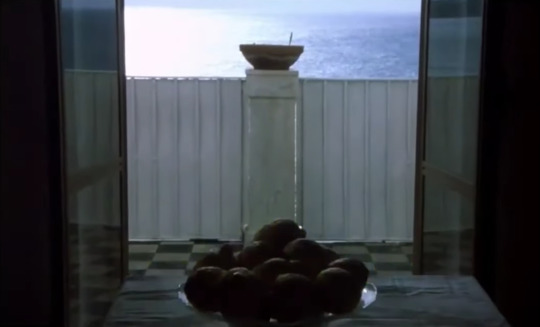
Then the film's title overlaps over the plant-pot and the plate of lemons:
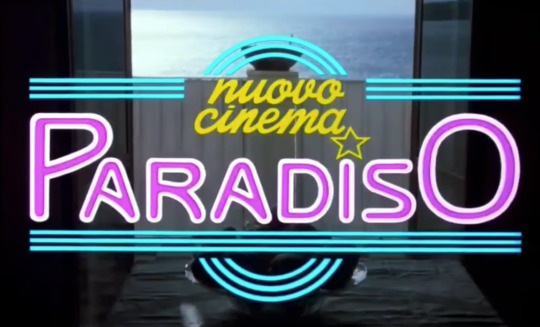
In the next scene we saw Salvatore's mother calling him from Sicilia to tell him about Alfredo's death. The telephone is next to the plate of lemons.
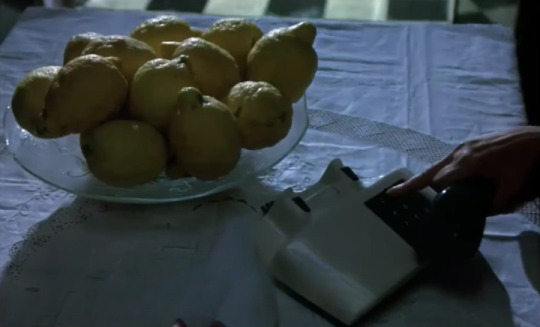
During the film, lemons always appears next to Salvatore's mother.
Salvatore's mother is called Maria, like Virgin Mary, mother of Jesus. The catholic symbolism is also pretty important in the film.
Cinema Paradiso is semi-autobiographical, based on the film's director Giuseppe Tornatore's life. So, for Tornatore lemons means home, they are a symbol of his natal Sicilia, so of course lemons are also associated with his mother.
Lemons = motherland = mother = home.
What is your favorite smell? The most nostalgic?
My favorite and most nostalgic smell is the one of the lemon orange blossom when spring approaches in Sicily. It usually starts happening in March, when suddenly, in the afternoon, right before sunset, the wind brings from the countryside the smell of the lemon orange blossom, then you knew that spring was coming. That’s probably one of the most emotional smells of my life, until these days, every time I think about it I get emotional. I’ve always been upset by the fact that no one has ever succeeded in making a perfume based on this scent. The lemon-based perfumes are not good, while the real smell of the lemon orange blossom is magnificent and hard to express in words.
—Giuseppe Tornatore
Next time we see a plate full of lemons, the scene happens in the past. The lemons are between a little Salvatore who is playing with some discarded films, and his mother who is sewing, probably mending some clothes.
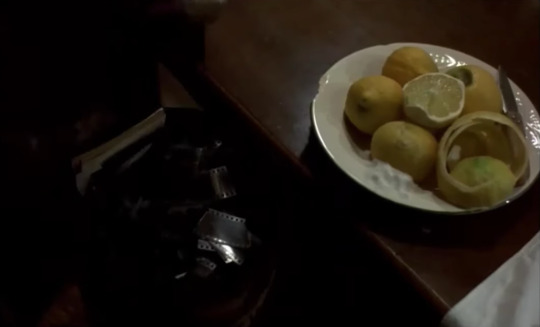
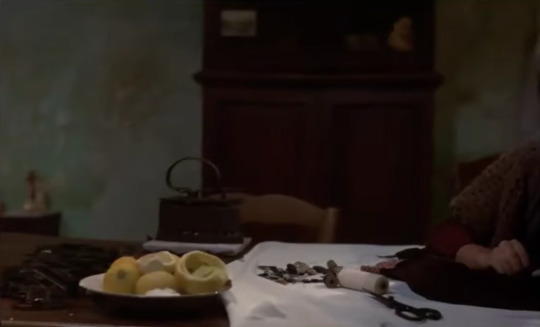
In this scene the plate full lemons, that are a symbol of Sicilia, home, his mother, are next to some discarded films that Salvatore took from Cinema Paradiso, which represent the fantastic and exiting new worlds of the movies, far far away from the old little town of Giancaldo, Sicilia.
As you can see, lemons evokes Tornatore's (And Salvatore's) early life in their natal Sicilia, with their mothers. The land and home and mother they had to leave to pursue their dreams of becoming a film director. Tornatore also associates them with the coming of the Spring.
But as a film director, Tornatore makes films about the land, the home, and the people from his early life. A full circle.
* * *
And all these details about lemons makes me think of Sansa and her lemon cakes, of course.
This is what GRRM has said about Lemon Cakes:
Which brings us back to the lemon cakes. He chose that particular sweet as Sansa’s favorite for historical and cultural reasons. “She lives in the North — what would be something she would get occasionally but not regularly? Lemon cakes! Because lemons don’t grow in the North. They would get fruit in the summers, but it would not be an everyday thing. It would be special and exciting.”
[Source]
Unlike the southern Sicilia, the North in Westeros doesn't produce lemons. But despite that, Sansa's favorite dessert are lemon cakes.
Lemons are from the South of Westeros, especially Dorne, and young Sansa always dreamed to know the South with its warmer weather, its courtly life and more frequent supply of lemons to make her beloved lemon cakes.
GRRM also associates lemons with Summer that it's the opposite of the North and its almost permanent Winter. Then lemons are an object of desire for Sansa, not a symbol of home (That's snow).
And being a desired fruit, lemon cakes (obviously made of lemons) are used to lure Sansa (à la Hansel and Gretel).
Indeed, Sansa's predilection for lemon cakes was informed by Varys to the Tyrells. Olenna Tyrell planned the meeting with Sansa as a way to gain information about Joffrey's true nature and seduce Sansa with the prospect of a marriage with Willas, the older and cripple heir of Highgarden:
"Sansa," Lady Alerie broke in, "you must be very hungry. Shall we have a bite of boar together, and some lemon cakes?"
"Lemon cakes are my favorite," Sansa admitted.
"So we have been told," declared Lady Olenna, who obviously had no intention of being hushed. "That Varys creature seemed to think we should be grateful for the information.
—A Storm of Swords - Sansa I
And Littlefinger is doing the same thing:
And best of all, Lord Nestor's cooks prepared a splendid subtlety, a lemon cake in the shape of the Giant's Lance, twelve feet tall and adorned with an Eyrie made of sugar.
For me, Alayne thought, as they wheeled it out. Sweetrobin loved lemon cakes too, but only after she told him that they were her favorites. The cake had required every lemon in the Vale, but Petyr had promised that he would send to Dorne for more.
—The Winds of Winter - Alayne I
But despite this negative aspect of lemon cakes for Sansa, what always caught my attention about Sansa and her beloved lemon cakes is the fact that lemon cakes are a dichotomy, an antithesis (literary figure), because despite lemons' acid/sour/bitter taste, they are made into a dessert, that are sweet by definition (sweet course). So we can say that lemon cakes are bittersweet.
But Sansa not only likes her desserts bittersweet, she also likes her songs bittersweet, that's why she describes her favorite songs as "beautiful, but terribly sad"
After the meal had been cleared away, many of the guests asked leave to go to the sept. Cersei graciously granted their request. Lady Tanda and her daughters were among those who fled. For those who remained, a singer was brought forth to fill the hall with the sweet music of the high harp. He sang of Jonquil and Florian, of Prince Aemon the Dragonknight and his love for his brother's queen, of Nymeria's ten thousand ships. They were beautiful songs, but terribly sad. Several of the women began to weep, and Sansa felt her own eyes growing moist.
—A Clash of Kings - Sansa VI
And that's why I said that when I think of GRRM saying that A Song of Ice and Fire will have a bittersweet ending, I think of Cinema Paradiso and not of The Lord of the Rings, which is the example that GRRM always gives for a bittersweet ending.
So I invite you to watch Cinema Paradiso original version, the director's cut, it's almost 3 hours but oh so worthy, because I think that Giuseppe Tornatore fully understands what a bittersweet ending is.
Life is beautiful and tragic. Something you seem to tap into in your films. What takes your breath away and what breaks your heart?
It breaks my heart to realize that the beauty of life always has its tragedy and the tragedy of life has its own beauty. This breaks my heart, especially the idea that unlike what Alfredo says in the film, that life is harder than in the movies, it is true, but unlike the movie, once life ends it is over. However, when a movie ends you can always watch it again. For this reason, cinema is more more eternal than life. Life is a movie that can be seen only once, a unique show. While a film can be seen a thousand times. Decades pass by, and the movie can be restored, the sound can be changed, as well as the support. You can always watch the movie again and again.
—Giuseppe Tornatore
Tornatore's words sounds exactly like something GRRM would say. And the use of Alfredo's words to Salvatore (Life's not like you saw it in the movies. Life...is harder.) confirms it, because, saving distances, this is exactly what Littlefinger says to Sansa about the songs: "Life is not a song, sweetling. You may learn that one day to your sorrow."
I don't want to make this post any longer, but it's worth to say that lemons are also a symbol of fertility and motherhood, in a similar way that in Cinema Paradiso, lemons are a symbol of motherland, mother and home.
The lemon tree (like the pear tree) is very fruitful, very fertile. (Like the Tullys).
And some Renaissance painters like the Flemish Joos van Cleve used to paint the classic Madonna and child depicting some lemons, as a foreshadowing of the bitterness of an adult Jesus's passion and death (the lost of a child).
See more here:
Virgin and Child
"The themes of the Incarnation, the Passion of Christ, and the Virgin’s supporting role are further emphasized by the naturally arranged still life on the balustrade. The beaker of wine and the bunch of grapes in the silver and gold-embellished compote clearly represent the Eucharist. Specifically, they recall the words that Christ spoke to his disciples at the Last Supper concerning his imminent sacrifice for Humankind: “This cup is the new testament in my blood, which is shed for you” (Luke 22:20). The pear, because of its sweetness, symbolizes the tender relationship between the Virgin and Child. The pomegranates recall Ovid’s Metamorphoses and the fate of Proserpina, who ate the seeds before leaving Hades and thus had to return there every year on a cyclical basis, prompting the changing seasons and, therefore, the notion of resurrection and immortality. The ruby-red color of the pomegranate seeds could also refer to the blood of Christ and his sacrifice for Humankind. The halved walnut prompts thoughts of the Passion, due to its bitter flavor and its shell that symbolizes the wood of Christ’s cross. Its three parts of the outer marrow, inner kernel, and shell also denote the Holy Trinity. Finally, the citrus fruit, cut in half, again alludes to the bitterness of Christ’s suffering."
The Holy Family
Furthermore, the citrus fruit, variously identified as a citron or lemon, has been thought to recall the weaning of the Christ Child, or, perhaps, a portent of the sting of Christ’s Passion.
The Holy Family
Although the illegible text of Joseph’s book provides no further clues, certain elements in the foreground imply a religious context—a glass holding lilies represents the Virgin’s purity, the half citrus fruit with a knife references the bitterness of the Passion, and a bunch of three cherries presents the traditional fruit of paradise.
The sweetness of motherhood and the bitterness of losing a child. Bittersweet paintings, who would have thought?
* * *
BONUS: LEMON JUICE
And lastly, let me show you this funny little mention of lemon juice. It happens when Salvatore loses his virginity with a prostitute.
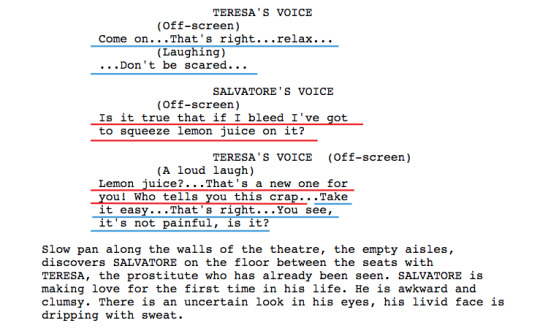
I'm not calling Ygritte a prostitute, but this scene reminds me of Jon's lost of virginity, the dialogue in this scene is similar to the dialogue in A Storm of Swords - Jon III, when a clumsy and awkward virgin Jon had sex with an experienced Ygritte for the first time:
"Isn't that good?" she whispered as she guided him inside her. She was sopping wet down there, and no maiden, that was plain, but Jon did not care. His vows, her maidenhood, none of it mattered, only the heat of her, the mouth on his, the finger that pinched at his nipple. "Isn't that sweet?" she said again. "Not so fast, oh, slow, yes, like that. There now, there now, yes, sweet, sweet. You know nothing, Jon Snow, but I can show you. Harder now. Yessss."
—A Storm of Swords - Jon III
And Teresa's response to Salvatore's naivety: "Who tells you this crap..." it's basically Ygritte's classic: "You know nothing, Jon Snow."
And to finish this post, the last image of Cinema Paradiso:

34 notes
·
View notes
